Dallas−Fort Worth Economic Indicators

| DFW economy dashboard (July 2025) | |||
Job growth (annualized)
April–July '25 |
Unemployment rate |
Avg. hourly earnings |
Avg. hourly earnings growth y/y |
0.4% |
3.7% | $36.53 | 4.3% |
The Dallas–Fort Worth economy slowed in July. Employment growth was sluggish, and unemployment edged up. Hourly earnings fell but remained higher than figures for the state and nation and above year-ago levels. Sales tax collections held steady. Consumer prices increased modestly compared to last July, while apartment rents were flat.
Labor market
Employment increases modestly
Employment in Dallas−Fort Worth grew an annualized 0.7 percent in July after falling 1.6 percent in June (Chart 1). Employment in Texas grew 0.9 percent in July. Dallas−Fort Worth job growth from April to July was mixed across major sectors, with the strongest gains in education and health services, government, and trade, transportation and utilities. Meanwhile, employment fell in professional and business services, information, finance, and manufacturing.
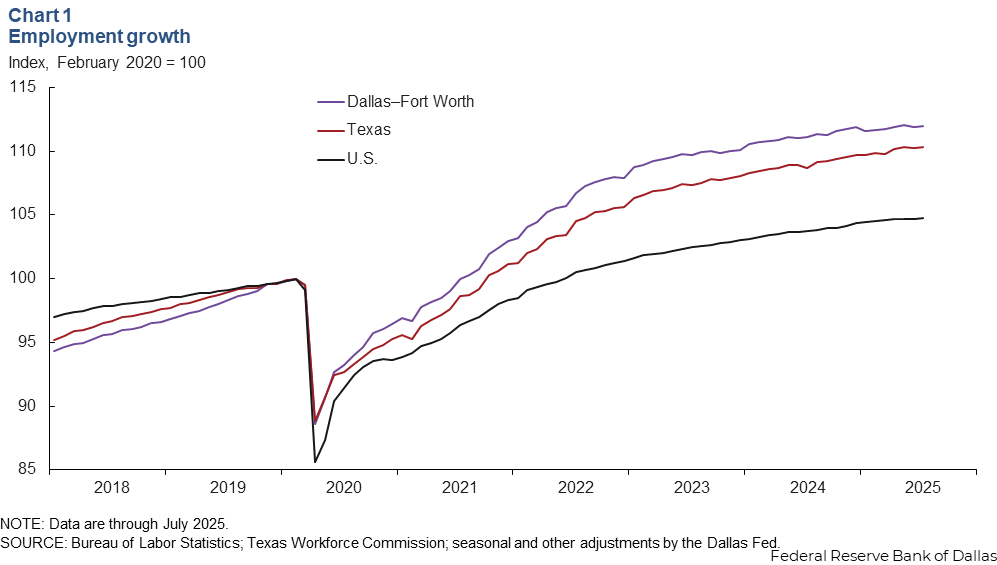
Unemployment rises slightly
Despite growth in payroll employment, the Dallas-Fort Worth unemployment rate ticked up to 3.7 percent in July from 3.5 percent in June (Chart 2). The jobless rate was 3.8 percent in Dallas and 3.7 percent in Fort Worth, both below the Texas jobless rate of 4.0 percent and the national rate of 4.2 percent.
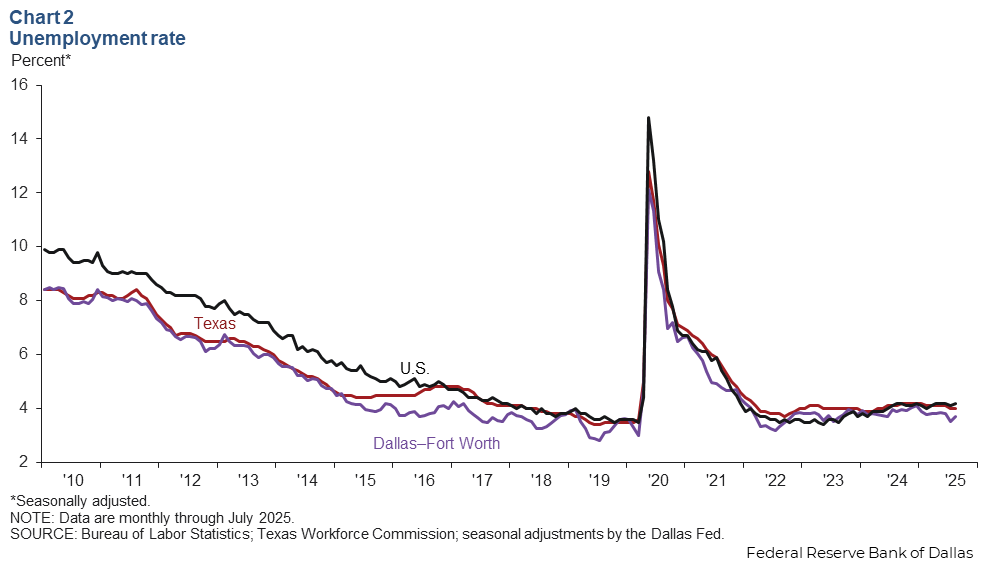
Earnings flat in July
The average nominal hourly wage in Dallas−Fort Worth was $36.53 in July, above the state ($34.27) and national ($36.44) figures. The three-month moving average for Dallas−Fort Worth was unchanged at $36.58 (Chart 3). Year-over-year hourly earnings were up 4.3 percent in the metro area, outpacing the state (3.6 percent) and national (3.9 percent) increases.
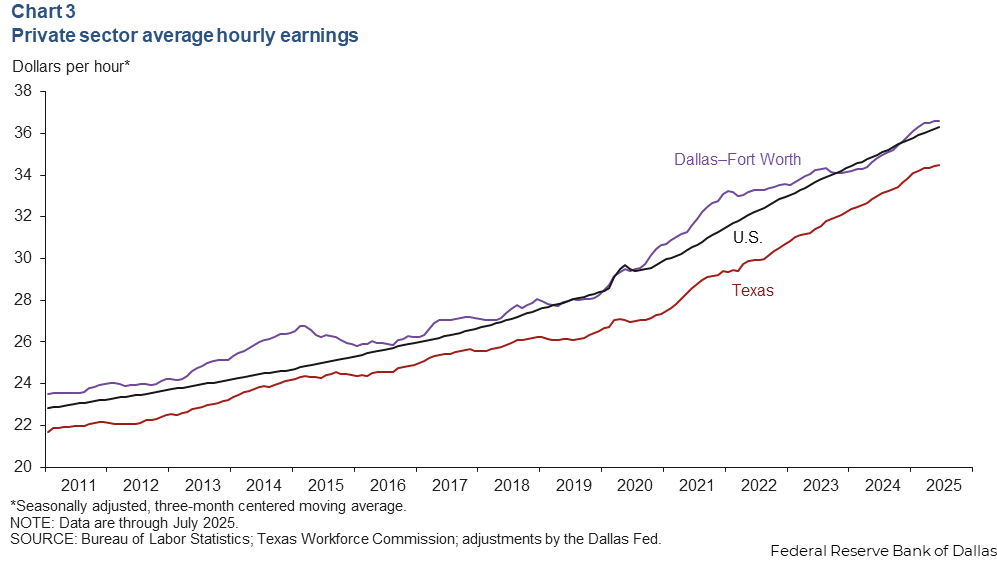
Consumer spending
Sales tax receipts, a proxy for consumption, held steady in Dallas–Fort Worth in July. The region’s sales tax collections were little changed in July at $261 million (Chart 4). Sales tax collections were up 0.7 percent in Dallas but declined 1.6 percent in Fort Worth. State sales tax collections were up 0.2 percent. Year-over-year sales tax collections rose 5.3 percent in Dallas–Fort Worth and 3.6 percent in Texas.
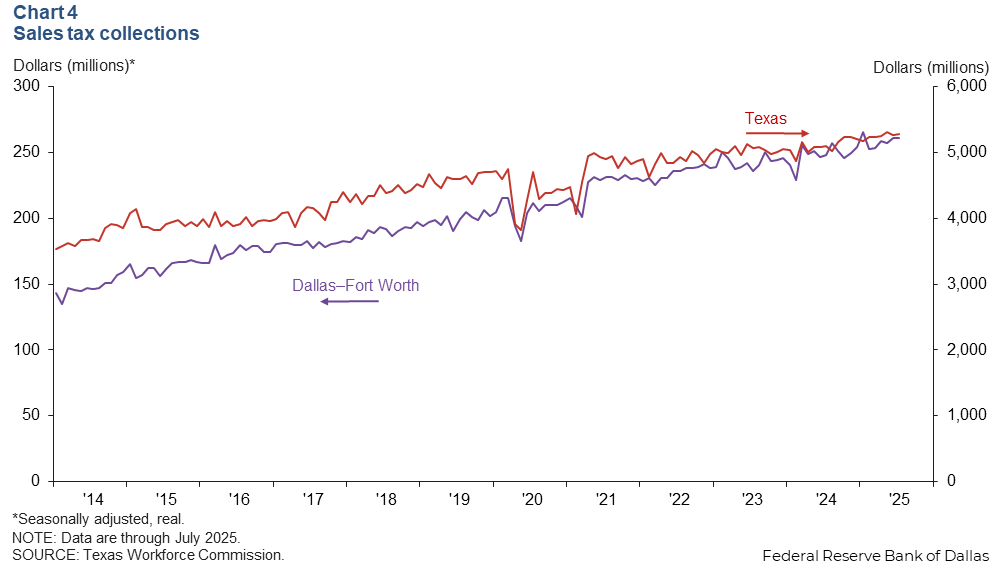
Inflation
The 12-month growth in the headline consumer price index (CPI) for Dallas was 0.9 percent in July (Chart 5). Core CPI for Dallas rose 1.0 percent. The 12-month change in food prices slowed to 2.0 percent in July compared with 2.5 percent in June. Shelter prices were up 0.5 percent, while energy prices declined 2.3 percent. In comparison, U.S. CPI rose faster than Dallas CPI over the past 12 months at 2.7 percent for headline and 3.0 percent for core, with food prices registering a 2.9 percent increase and energy declining 1.3 percent.
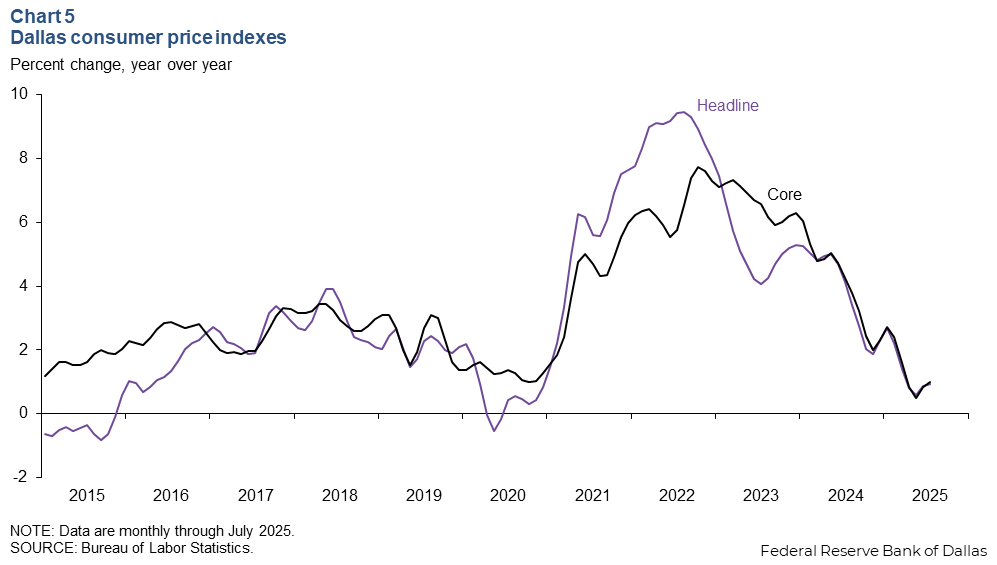
Apartment market
Year-over-year apartment rents were flat in Dallas in July and up 2.2 percent in the U.S. (Chart 6). Dallas rental rates at $1,570 in July remain below the U.S. average of nearly $1,900. Rents dipped 0.1 percent from June to July in Dallas but edged up 0.1 percent nationally.
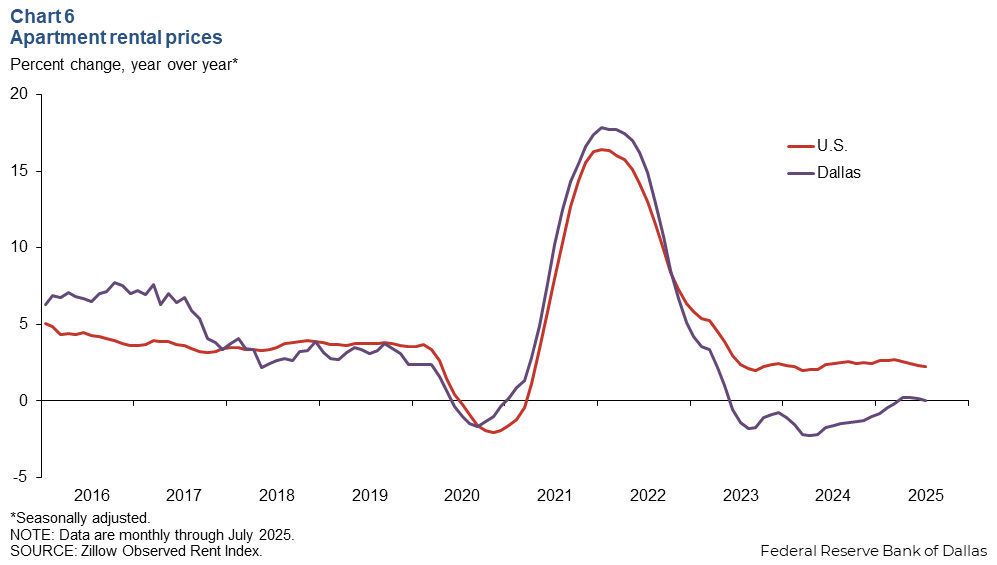
NOTE: Data may not match previously published numbers due to revisions.
About Dallas–Fort Worth Economic Indicators
Questions or suggestions can be addressed to Dylan Council. Dallas–Fort Worth Economic Indicators is published every month after state and metro employment data are released.